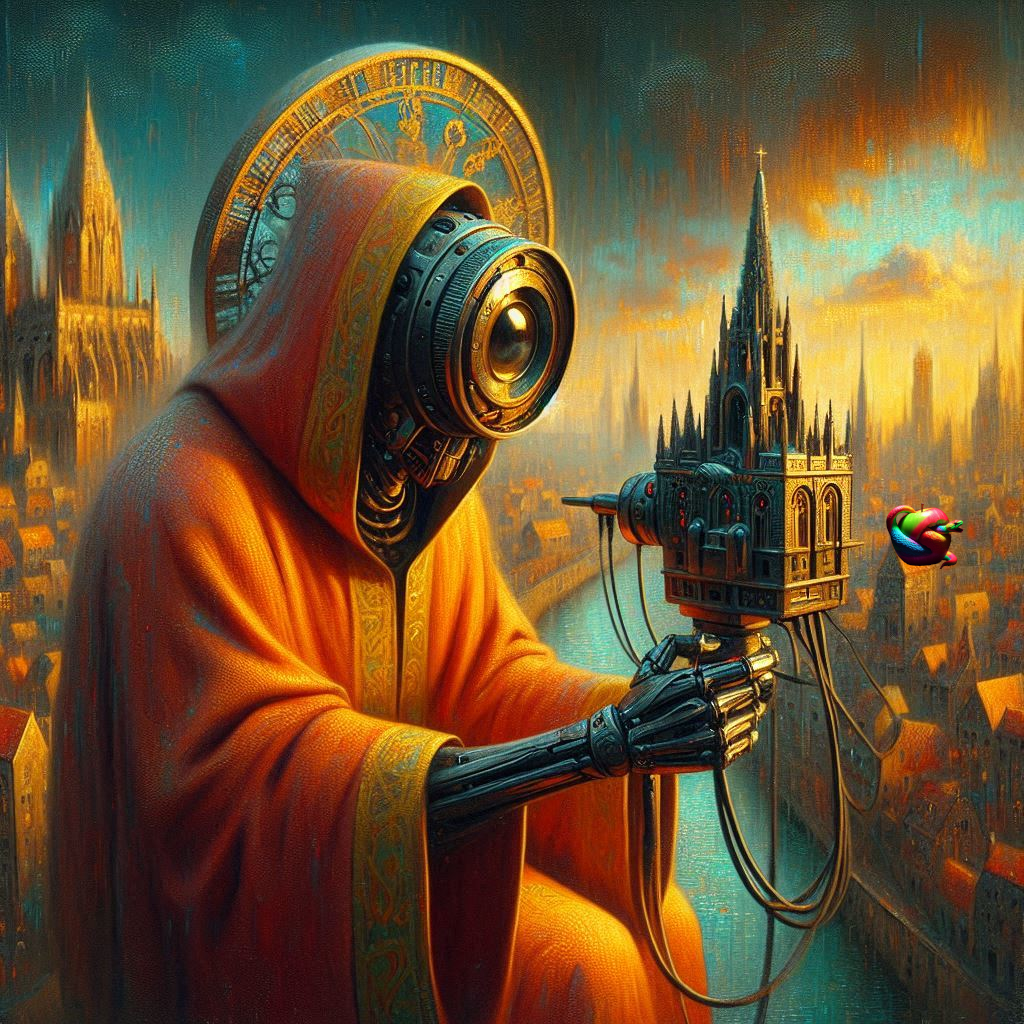The Catholic Church is a technocracy

There is a type of social scientism which is called technocracy (and not sciencarchy I’m afraid, which is an attempt at a neologism, but I did not get there first, see references).
Technocracy has been overshadowed in recent decades by the term technocrat which is a type of bureaucrat who uses some sort of mathematical based science to determine processes and measures in implementing policy. But generally technocrats are just a style of bureaucrat rather than their own thing. For a technocrat to be more than just a bureaucrat with a ruler and thermometer, you would actually need a technocracy that is in power (and not just implementing the law with best practices). And not just ‘forms a government’ and a public service, but structures the basic fabirc of the constitution or sovereignty of a polity, in which the decision-makers are selected based on their expertise and skills in a given area, particularly with regard to scientific or technical knowledge. (When pro-technocracy peeps boost it they focus on the science that informs the technology or engineering, and not the τέχνη [tekhne] or skillset that names it.
Looking for pro-technocracies writings? Then check out Elon Musk’s grandfather J. N. Haldeman. He got in trouble with the law in Canada for being involved in Technocracy movement. (Elon is not a technocract despite being a techbro, he is just a brand, and well ‘capitalised’ influencer).
If we look to actual examples of structured technocratic nations or countries in the real world there are few and far between, even those that may try to do this fail at it.
Indeed I would argue the closest thing we have had to a technocracy was the Catholic Church. Not because they used science (or even faith) to inform their τέχνη, but in the way they use "reason" as they defined it, to both promote their authority from magisterium, and to enforce that, by way of their ‘traditional’ control (no other traditions of control allowed) over scripture (authorised bible traditionally guarded and not allow any of that personal devotee-ism nor chiliastic irruptions of faith by lower orders).
The skills that make the church a technocracy are the skills of social control. Calls on tradition are calls on τέχνη. Tradition is a technique of power and control.
Here reason is used not as a scientism-istic standard nor a rationalist measure or method, but as a technical capture of the reasonable middle-ground that most of us world in (in this case the of the status quo of Christianity as being the Imperial cult where one pays unto Ceasar what is caesar's | because Roman armies).
This technical capture was by the cleric technocracts of the church who decide what it is you belief (and it is your job of conscience to obey them and abide by their reasons and feel guilty if you don’t) as well as deciding who next gets that gig | because no women who become abominations if pregnant during the ordination ceremony | because magic.

This equivalising of technocracy with the Catholic Church is similar to saying a meritocracy is equivalent to a feudal military system of government based on the merit or honour of those who can maintain the most loyal and effective troops and allies. It’s a joke, but it has a point.
Whatever we do, we world it all up together.
For more crazy stuff about the Catholic Church see this listing page.
References
‘Sciencarchy’ a very near a googlewhack first appears in:
Gelernter, David. Mirror Worlds: Or the Day Software Puts the Universe in a Shoebox...How It Will Happen and What It Will Mean. Oxford University Press, 1993. (or maybe 1991)
and then has no life at all except in a quote in a essay from Gelernter’s book.
Ulysses Sengupta. “ICT, Open Data and the Internet of Things: Potential Future Trajectories in Urban Planning.” [via academia.edu]
This essay is from the book:
Yamu, Claudia, et al. The Virtual and the Real in Planning and Urban Design: Perspectives, Practices and Applications. Routledge, 2017.
And this is the quote of Gelernter in Sengupta’s essay:
“[…] You will look into a computer screen and see reality. Some part of your world – the town you live in, the company you work for, your school system, the city hospital – will hang there in a sharp color image, abstract but recognizable, moving subtly in a thousand places. This Mirror World you are looking at is fed by a steady rush of new data pouring in through cables […]. They are software models of some chunk of reality, some piece of the real world going on outside your window. Oceans of information pour endlessly into the model (through a vast maze of software pipes and hoses): so much information that the model can mimic the reality’s every move, moment-by-moment […]. Such models, such Mirror Worlds, promise to be powerful, fascinating, and gigantic in their implications. They are scientific viewing tools – […] on the human-scale social world of organizations, institutions and machines; […] The intellectual content, the social implications of these software gizmos make them far too important to be left in the hands of the computer sciencarchy.”
We call 'em techbros now bro.
See also:
Getahun, Hannah. “Elon Musk’s Grandfather Belonged to a Political Party That Believed the World Should Be Governed by Technology. Newspapers at the Time Described It as Having ‘the Tone of an Incipient Fascist Movement.’” Business Insider, https://www.businessinsider.com/who-was-elon-musk-grandfather-joshua-haldeman-technocracy-incorporated-party-2023-9. Accessed 24 July 2024.
Lepore, Jill. “The World According to Elon Musk’s Grandfather.” The New Yorker, 19 Sept. 2023. www.newyorker.com, https://www.newyorker.com/news/daily-comment/the-world-according-to-elon-musks-grandfather.
